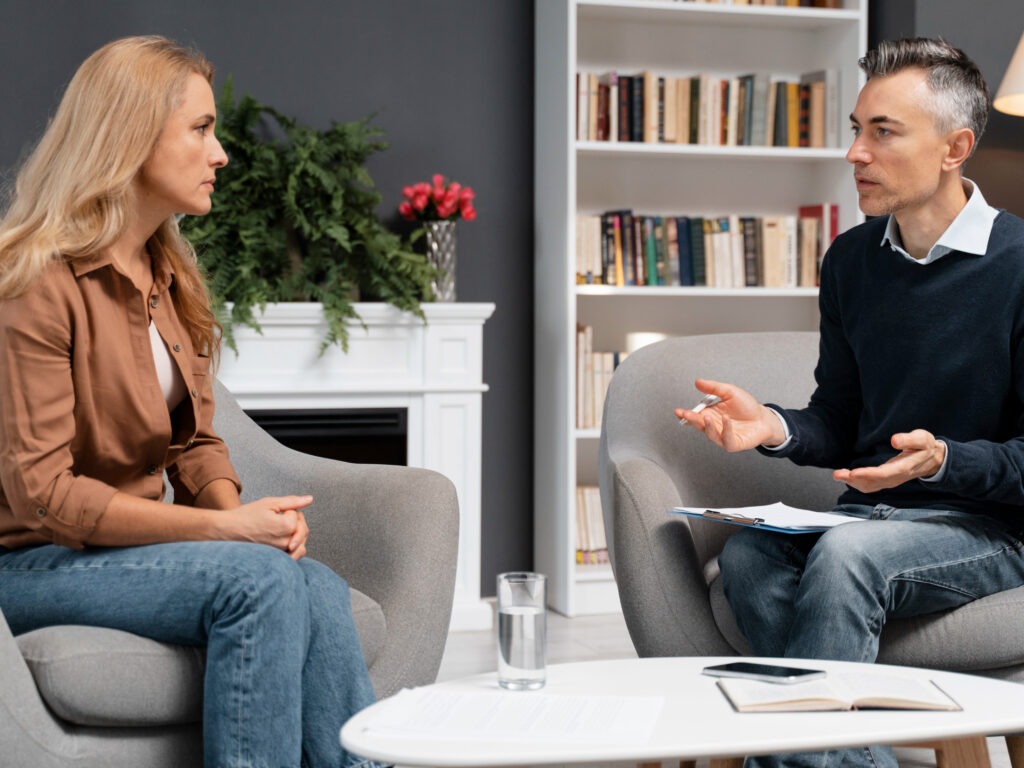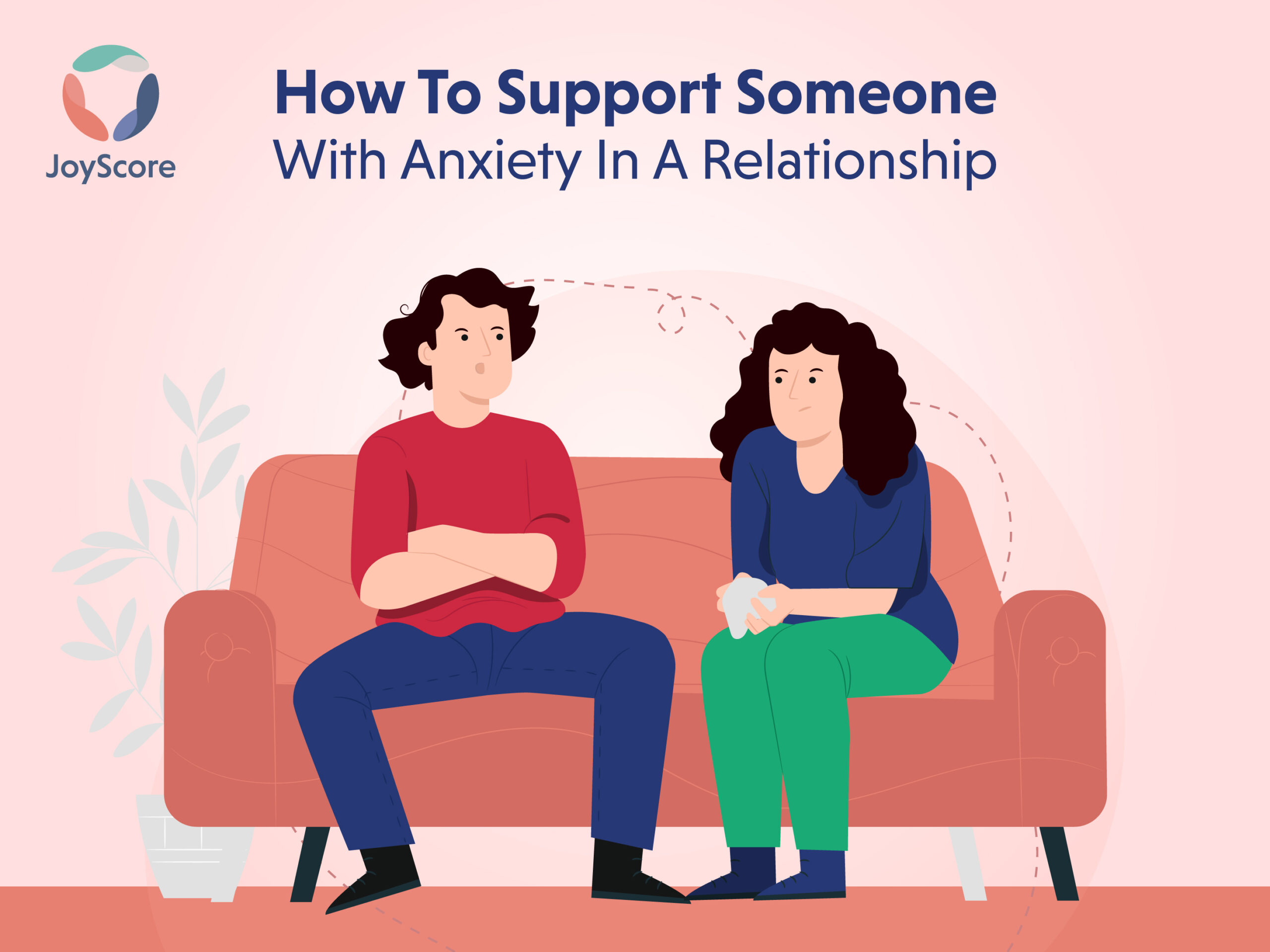Anxiety is a normal, healthy emotion. But when anxiety is left unchecked, it can lead to problems in your relationships and also make you feel like life isn’t worth living.
Anxiety can increase in many situations of life. This article will discuss anxiety in relationships and its impact on various aspects of relationships like communication, trust, and intimacy issues. Anxiety can be caused by conflicts in communication, trust issues, and emotional distance in a relationship. It is a part of the daily routine to deal with the challenges that come in a relationship. The idea is to overcome these challenges and imagine your future together with your partner.
Signs of anxiety in a relationship
When you are anxious, your body goes on alert and prepares itself to fight. As a result, some anxiety symptoms can be difficult for others to understand. It might look like you’re being irrational, but inside you’re feeling scared and overwhelmed.
- Spending less time with your partner
If you are suddenly spending less time with your partner, it might be because of anxiety. Everyone deals with anxiety in different ways. Some people need more space for themselves when experiencing anxiety, while others need more time with the person they love.
- Picking arguments always
Anxious people often worry that something they did or said upset their partner, so they may start unnecessary arguments or bring up old problems repeatedly until they get reassurance.
- Questioning long-term compatibility
Anxious people tend to have a lot of doubts about their relationships. They can worry about whether or not their partner is compatible with them or if they will find someone better one day.
- Feeling insecure and wanting to break up

When you feel insecure, it’s easy to start feeling like you’re in a relationship that’s out of balance. You start getting angry or frustrated, leading to arguments or even breakups.
- Being doubtful about the behaviours
Anxious people tend to think their partner will leave them, that the relationship isn’t good enough or that they are not good enough. The anxious person tends to be less trusting of their partner, less secure, and more focused on little things.
Causes of anxiety in a relationship
- Emotional neglect
In a relationship, emotional neglect is when one partner’s emotional needs are not being met. This can be through lack of validation or empathy, not listening to a person’s feelings, or having poor communication skills. When this happens, a person may feel that their emotional needs are not being prioritized by their partner, which can make them feel anxious about the future of the relationship.
- Attachment difficulties
Attachment difficulties are a common cause of anxiety in relationships. People who struggle with issues such as trust, insecurity, and clinginess tend to feel anxious about their relationships. They may worry that their partner will leave them or be unfaithful, constantly seek reassurance from their partner, or have trouble coping when the partner spends time away from them.
- General anxiety
People who are in relationships generally have some level of anxiety about their partners. Whether it’s knowing that your partner doesn’t like their job or thinking they might cheat on you, general anxiety can negatively affect your relationship. Sometimes anxiety can become more pronounced as you grow older because of more experience with other relationships, so if it’s present now, maybe it wasn’t always that way.
- Intrusive parents
Intrusive parents can also be a source of stress in otherwise-healthy relationships where they aren’t the primary issue. The fear that one partner will get too close and invade the other’s personal space can be enough to make a relationship sour, regardless of its actual merits.
How to overcome anxiety in a relationship
It’s easy to get caught up in the puzzle of a new relationship. But when it starts affecting your mental health, it can be hard to know what to do.
- Communicate in a proper manner.

Talk about what you’re going through with people whom you trust. If that feels too hard, start by opening up to close friends or family members who already know about your anxiety. Talking with other people experiencing similar issues can be an especially helpful way to reduce feelings of isolation and gain coping strategies that work for others.
- Be more mindful.
Bringing mindfulness into your life and your relationship can help ground you and reduce some of the stress and worry you experience.
- Maintain your individuality
When you’re starting a new relationship, spending all your time together can be tempting. But keeping some independence (and maintaining your interests and friendships) is key for your mental health.
- Maintain honesty about your feelings.
Be open about your feelings. Recognize your partner’s expression of love. If you have anxiety, you may have trouble recognizing that your partner loves you. Reframe your interpretation of what love means by looking for evidence of love through your partner’s actions, words, and tone.
- Use self-soothing tips.
To help your partner overcome anxiety, you also need to take care of yourself.
While you can’t eliminate anxious thoughts or feelings, you can learn to manage them. Self-soothing techniques — like deep breathing and muscle relaxation — can help your partner deal with the physical symptoms of anxiety.
Here are some strategies for self-care:
- Eat healthy foods,
- Exercise regularly,
- Get plenty of sleep
- Practice relaxation skills, such as deep breathing and muscle relaxation
- Increase the emotional connection by showing gratitude
Feeling connected can help reduce anxiety about losing the person you’re dating. Showing gratitude for what you have is also important and will make you even more attractive to others.
- Go to therapy

Therapy can help reduce relationship anxiety as you learn how to overcome your insecurities and deal with conflict in a healthy way. By learning how to manage your anxiety, you will be able to stop it from taking over your life or causing problems in your relationship.
People with anxiety are not the problem; instead, their anxiety is a problem. The good news is that anxiety can be addressed, dealt with, and can be overcome. Do not think of yourself as “bound” to your anxiety or negative thinking because you are not. The change you desire in your life starts with you and not anyone else or anything else.
Download on the Appstore
Get it on Google Play



